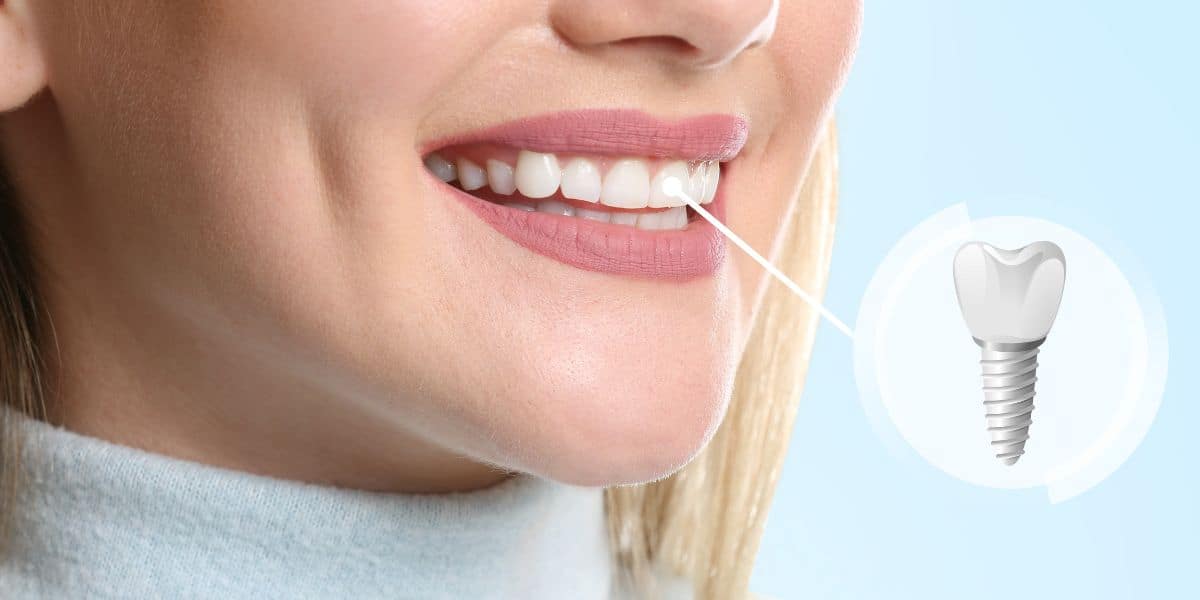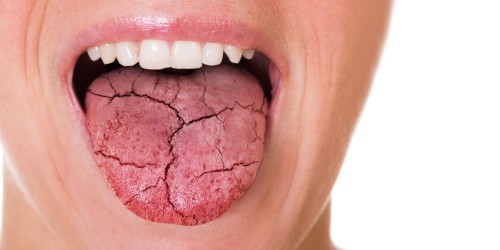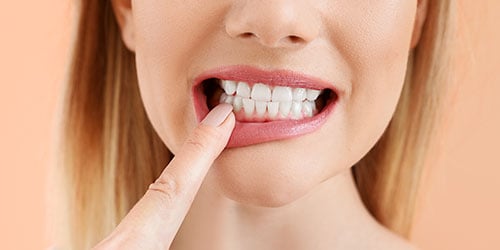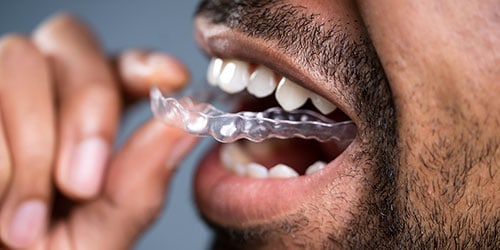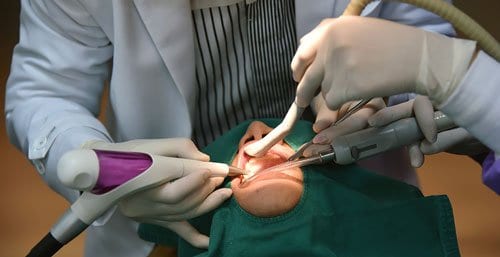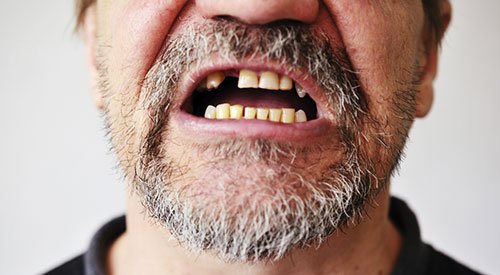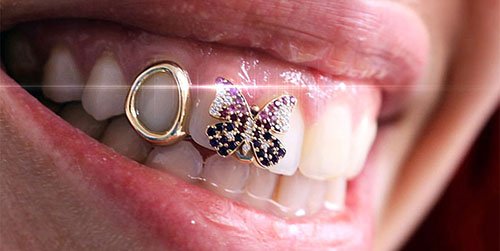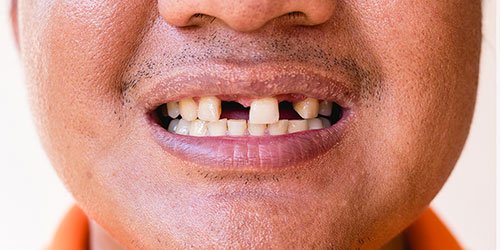At MD Periodontics, we will never get tired of reminding our patients that oral care is a good gauge of general health – even in complex, non-obvious ways. We’ve known for a while that there is a strong link between worsening dementia and gingivitis, even if we didn’t know the exact direction of it. What’s undeniable is that people with gum disease have an increased risk of developing Alzheimer’s disease in the first place, and have it progress rapidly.
However, thanks to a recent study, we finally have clues as to why this happens. Today, we bring you the latest news on how poor oral hygiene can affect your cognitive health.

About gingivitis and gum disease
Before we delve into the scientific details of this study, let’s take a look at what gum disease actually is and the processes behind it.
There are two main levels of gum disease: gingivitis and the more serious periodontitis. Gingivitis, which usually develops first, is when the gums holding your teeth in place get irritated, red, or swollen. This usually happens due to the buildup of bacteria around your teeth. This bacteria first forms a layer of plaque — a clear and sticky substance that covers your teeth. If left to fester, plaque will become tartar — a harder and more visible form of plaque.
Tartar will protect the bacteria underneath and irritate the surrounding gums, leading to gingivitis. Swollen gums may start to bleed or recede (shrink), leaving the edges of the teeth exposed. At this point, we begin to reach periodontitis – that is, bacteria become so well-rooted around your teeth that you’ll be at risk of damaging the underlying bone or losing your teeth.
Both types of gum disease are caused by a combination of different bacteria. One of the most common ones is known as Porphyromonas gingivalis. After feeding, this bacteria creates a toxic enzyme known as gingipains, which has now been linked to systemic inflammation and half a dozen different health issues.
What is Alzheimer’s disease?
Although many people like to use “Alzheimer’s” and “dementia” interchangeably, Alzheimer’s disease is really the most common cause of dementia.
Alzheimer’s is a specific brain disease that causes brain cells to shrink or die. This happens slowly and progressively: over the course of several years, someone with Alzheimer’s will develop problems with their short-term memory, and then move on to forget older information (such as the name of loved ones or everyday objects).
At the same time, the ability to reason, make decisions, or perform routine tasks will also be lost – this is dementia.

We don’t really understand the full cause of Alzheimer’s disease. We know that the older a person gets, the more likely they are to develop the condition. At some point, brain proteins just stop working properly, setting off a chain of events that will progressively damage the brain.
One of the key proteins in this process is known as beta-amyloid. In Alzheimer’s patients, amyloids start accumulating into clusters (or plaque) which then block communication between neurons. We don’t know what causes the plaques to form, but their presence is one of the most accurate biomarkers used to diagnose and monitor the disease.
What’s undeniable is that people with gum disease have an increased risk of developing Alzheimer’s disease…
Where’s the link between gingivitis and dementia?
At first glance, the relationship between gingivitis and Alzheimer’s seems easy to brush off: as dementia makes it harder to keep track of daily activities, it’s natural for oral health to worsen. But thanks to the new study published by Science Magazine, the process may go the other way around: it’s the oral bacteria that cause Alzheimer’s, triggering the process that forms amyloid plaque.
About the study
This discovery was long in the making. The team of researchers kept track of approximately 6,000 patients at high risk of Alzheimer’s, routinely examined their gum health and their levels of antibodies, and observed their neurological health for up to 26 years.
By the end of the study, many of the patients had passed away from a variety of natural causes. Those who had died with a diagnosis of Alzheimer’s (and had agreed to it beforehand) were then autopsied in order to examine their brain tissue.
Here is where the link became clear: in many cases (especially those of patients who had deteriorated quickly), the doctors found traces of gingipains inside the brain tissue and spinal fluid. Gingipains, researchers found, contributed to the death of nerve cells.

So, does gum disease cause Alzheimer’s? It’s really a bit more complex than that. What seems certain at this point is that gum health problems tend to come before dementia, rather than resulting from a lack of self-care.
Researchers also noticed that patients who had higher levels of antibodies for oral bacteria, or who’d has experienced tooth loss, were six times more likely to experience fast cognitive decline during the following 12 months.
Some researchers believe that the presence of pathogens could cause neuroinflammation, setting off Alzheimer’s disease. Naturally, genetics and other lifestyle habits also play a role in the development of Alzheimer’s.
Perhaps future science advances or clinical trials will let us peek at people’s brains more easily, but right now, the link is already too strong to be ignored.
Afraid of the gingivitis-Alzheimer’s connection? Here’s how to prevent it
MD Periodontics specializes in oral health, not neuroscience – but whether you believe the egg came before the chicken or the other way around, you will see that dental health is basic healthcare.
Gum disease prevention rests on three basic pillars:
- A thorough hygiene routine, which includes good fluoride-enriched toothpaste and daily flossing.
- Regular check-ups and dental cleanings every 6 to 12 months.
- Keeping an eye on other risk factors: bruxism, diabetes or high blood sugar levels, dry mouth, or smoking all cause a higher risk of gingivitis.
This is simple advice, but it is the cornerstone to preventing periodontal disease or tooth loss. And even the Alzheimer’s Association agrees with us!
Looking for healthier gums near L.A.? MD Periodontics are the experts you need
MD Periodontics was started by two highly-qualified board-certified periodontists: Doctor Moshrefi and Dr. Daneshmand. They are members of the American Academy of Periodontology, and they firmly believe in delivering comprehensive dental care in a friendly, soothing atmosphere.
At their Los Angeles clinic, they offer a swanky backdrop for a wide range of dental procedures – from implants and gum grafts to cosmetic dentistry or braces. At each one of their consultations, they will go the extra mile to ensure you are comfortable and to calm the natural nerves that usually precede a dental appointment. If you need a few minutes of breathing exercises, relaxing music, or a thorough explanation of the relationship between Alzheimer’s and flossing for older adults, just ask!
Schedule a consultation online or call us at (310) 859-9449. A spa-like atmosphere, staffed by a team who truly cares about your smile, awaits you!
MD Periodontics is conveniently located for patients throughout the metropolitan Los Angeles area. Our board-certified periodontists and implant dentistry experts are available at locations in or near Beverly Hills, Santa Monica, West Los Angeles, Culver City, West Hollywood, Downtown Los Angeles, Marina del Rey, Pacific Palisades, Malibu, Manhattan Beach, Sherman Oaks, and Encino.
- How To Pick The Best Dental Implant Specialist Near Me - September 17, 2024
- Can Bleeding Gums Be a Symptom of Something More Serious? - May 27, 2024
- What Is Hydroxyapatite Toothpaste, and Is It Better for You? - May 1, 2024
 (310) 859-9449
(310) 859-9449 New Evidence on the Link between Gum Disease and Alzheimer’s
New Evidence on the Link between Gum Disease and Alzheimer’s
 or call us at
or call us at 




